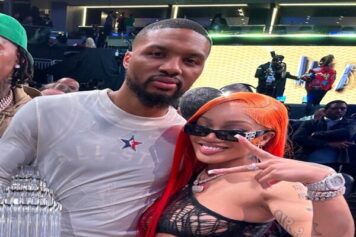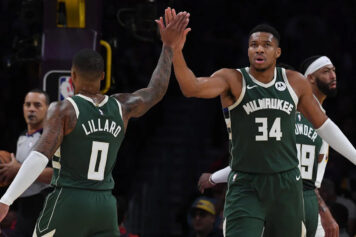Last Saturday, July 1, Portland Trail Blazers guard Damian Lillard demanded a trade from the only team he’s played for in his 11-year career. He and his agent Aaron Goodwin also have made it clear that the Miami Heat is his preferred destination. In any of the previous years if a demand like that was made, the player would get placed with his preferred choice. But the Blazers are under no obligation to move Lillard to Miami, and this might mean the end of player empowerment.
Players Should Be Able To Play Where They Want
To be clear, I am in favor of players having the right to play wherever they want. That would involve eliminating the draft and making short term deals. Most players want the security of longer deals, so you have to give something up in order to get that.
I’m also a believer that as team’s expect players to work hard and be the best versions of themselves, players should expect teams to also do their best and make winning a priority.
Once either party fails to live up to that agreement, the other should be free to move on in whatever ways are acceptable, according to the collective bargaining agreement.
Now most fans would make the argument that Lillard has held up his end of the bargain, but the Blazers have not held up theirs by failing to field a winning team around the superstar. Let’s say that’s true. If that’s the case, it has been going on for a few seasons. This isn’t a new thing.
If it was clear to Lillard and his team that the Blazers weren’t going to build a contender around him, then why did he sign the four-year max extension ahead of the 2020-21 season and then extend it again for two more years into 2026-27 just last summer?
Lillard Gave Up His Power And Leverage By Continuing To Sign Deals
He could’ve hit free agency long ago, and had a bevy of suitors lined up. But he instead chose the money and long-term security. I have no issue with that. But he can’t have his cake and eat it, too.
Not in this NBA, where the board of governors is trying to limit the power star players have to hold teams over a barrel. With severe penalties in place in the new CBA for keeping old superstar players on supermax deals, teams will be reticent to tie themselves to those players if winning is not likely.
The Blazers are responsible for signing Lillard to $449 million in guaranteed money. No matter where he ends up, he will be collecting the remaining $216 million of that money.
Lillard can’t complain that the Blazers underpaid him. So at this point, they owe him nothing.
Blazers GM Joe Cronin has to do what is right for the Blazers, despite Lillard’s request to go to Miami. He has four years remaining on his deal; he will show up and play wherever he is traded.
If the Heat have the best package they will get Lillard. But it’s unclear that the team will.
The Blazers want young talent and a plethora of picks and swaps in return for a player of Lillard’s stature. The best the Heat could do is probably: Tyler Herro, Kyle Lowry (expiring and salary match), Jaime Jaquez Jr., Nikola Jovic, 2028 first-round pick, 2029 pick swap, and a 2030 first-round pick. Two firsts and a swap is not enough draft capital.
The Brooklyn Nets and Utah Jazz all have more first-round picks than the Heat, so they could make a sweeter offer. If the Philadelphia 76ers get a third team involved, they could move James Harden and bring back the draft capital the Blazers would want in exchange for Lillard.
The other piece of relevant information in all of this is Lillard is a stand-up guy. He would never pull a Harden or Kyrie Irving and sulk or self-sabotage his way out of a situation. He’s the consummate professional. Wherever he gets traded, he will show up and put in the work — so there is no fear from other teams that he would sit out or be anything other than who he’s been his whole career.
With not much leverage, Lillard doesn’t seem to possess much control over the situation.



